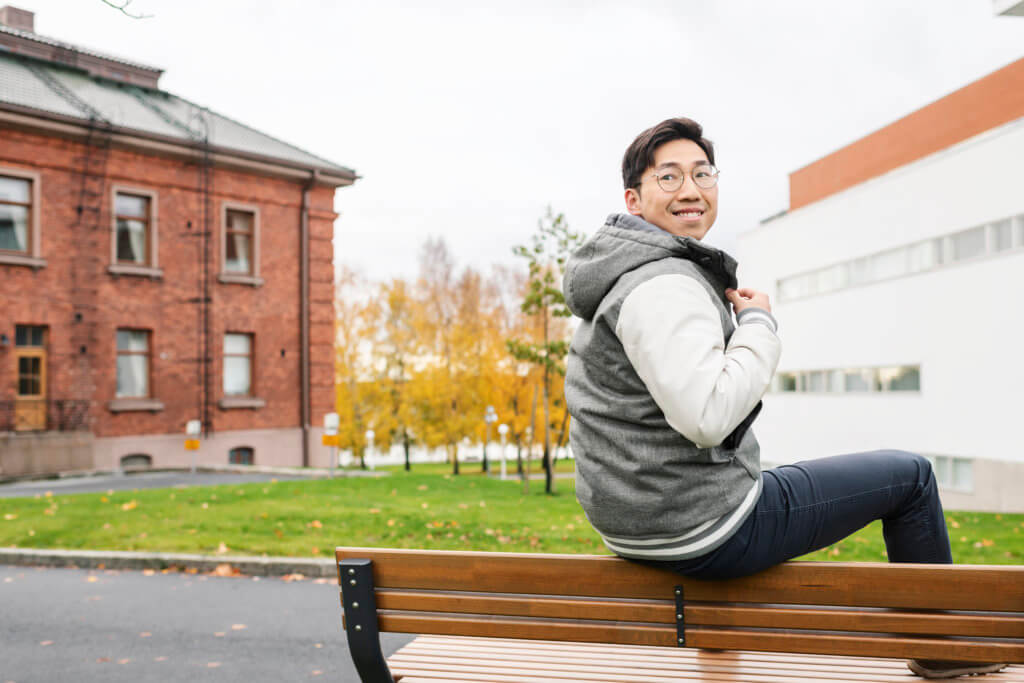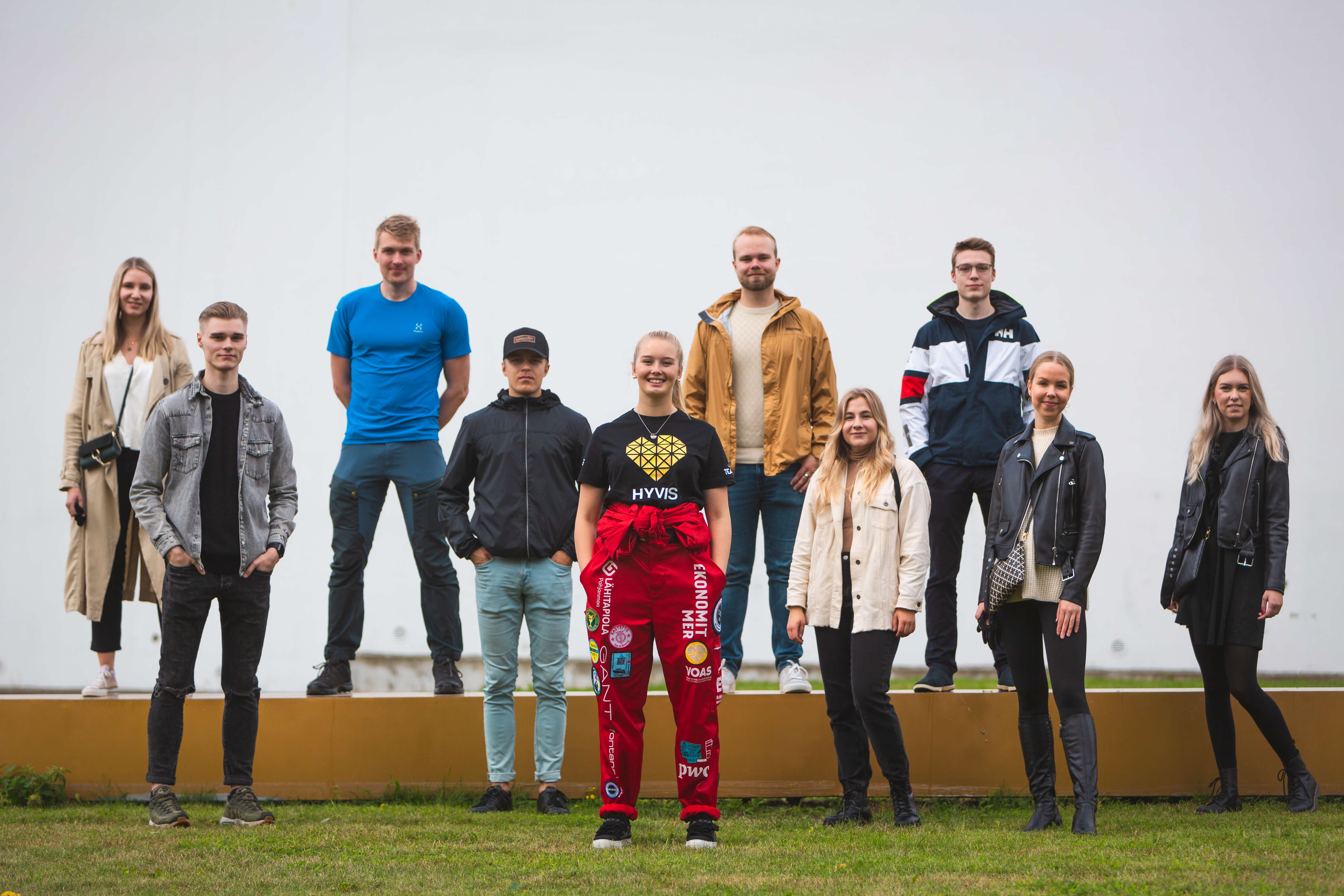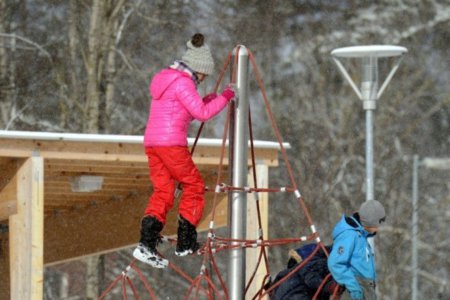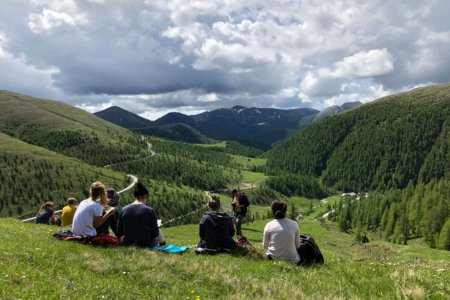Finland is well-known for many things. It’s where the wildly addictive Angry Birds game was created. For four years straight, Finland has been named the happiest country in the world by the United Nations Sustainable Development Solutions Network. Nature’s most spectacular light show, the Aurora Borealis, can also be seen here.
More impressively, Finland is also a stable society with a long tradition of equality, according to Raine Hermans, Dean of University of Vaasa School of Technology and Innovation. “We value results, not the origin or gender of the students,” he says.
Indeed, when students come to study at the multi-disciplinary School of Technology and Innovation, they can expect to receive equal opportunities to step up on top of an internationally-accredited curriculum.
“Our teaching impacts are based on highly qualified research and practice-oriented approach in collaboration with the industry,” explains Hermans. “We bring up the research findings to students and demonstrate the findings in practice in university laboratories.”
Here, teachers and professors offer high-quality and individualised guidance to help their students achieve success. Hermans – a fan of practice-oriented innovation – is leading by example through his tech startup in sustainable self-sufficient greenhouse farming.
“I want to encourage our students to not only to learn new methods and increase their awareness, but also put the learnt things into practice. I’m personally committed to creating environmentally friendly solutions for conventional businesses especially in improving their energy-efficiency and decreasing their carbon footprint. This is also a priority of our school,” Hermans adds.
The school is located in Vaasa City, on Finland’s west coast, which happens to be the main renewable energy industry hub within the Nordic nations. The university is known as the forerunner in smart grid networks and regularly attracts regional companies seeking to test their solutions – additional and valuable perks for those studying at Vaasa’s beautiful seaside campus.
“The businesses in the surrounding industry bring real-life problems to us. This provides our students excellent opportunities to write their theses on solving these problems in collaboration with potential future employers, enhancing their potential to be employed by the industry,” Hermans says.

Source: University of Vaasa School of Technology and Innovation
The School of Technology and Innovation also partners with the Renewable Energy research group – where they undertake several ongoing projects funded by the EU, Business Finland, regional associations, foundations and companies. Many projects involve a large number of domestic and foreign companies as well as academic institutions, giving students even more research and work opportunities.
That is why the School of Technology and Innovation has been offering several exciting International Master’s programmes to capitalise on the City’s proximity to energy businesses and cement its niche reputation of carrying out impactful research on global issues including energy and sustainable developments. These two-year programmes are conducted in English and boast reputable accreditations and rankings.
The ASIIN-accredited Master’s Programme in Industrial Management is ranked 15th for Industrial and Operations Management, Western Europe, in the Eduniversal Masters Ranking 2019. Students on this programme will be trained to solve problems related to product development, service development, production, energy business and environmental issues in a networked industry setting.
“I see this programme as a strong link between my engineering background and the business and managerial areas that I wish to focus on. The courses in the programme foster critical thinking and communication skills,” says Adriana de la Garza Musi from Mexico.
The Master’s Programme in Industrial Systems Analytics focuses on complex industrial systems, design and analytics. This ASIIN-accredited programme not only provides the content, models and methods to design complex processes and systems in the industry, but also teaches students to develop, implement and operate them elsewhere.
For Zeya Zheng, the programme’s large number of digital field courses meets all his expectations.
“The ISA gives you an opportunity to develop yourself as deeply in systems as you would like. So, you find there are not only machine learning and embedded programming courses but also quality management and project management courses,” Zheng says.
For those who like to design solutions for sustainable and smart energy systems, the Master’s Programme in Smart Energy is a good fit. Students learn about various interdisciplinary interactions ranging from new technologies to policies and customer needs.
“The integration of Energy Systems, Business and Digitalisation modules combined into a single programme was one of the most interesting features. Students can also choose any course of their interests,” says current student Talal Saleh.
The setting for these industry-relevant programmes? The city of Vaasa — an urban space surrounded by beautiful beaches, forest parks and the Kvarken archipelago (a UNESCO World Natural Heritage site).
All in all, the University of Vaasa School of Technology and Innovation offers an excellent education and experience for anyone wanting to study in the world’s happiest country.
Follow the University of Vaasa on Facebook, Twitter, YouTube, Instagram and LinkedIn











